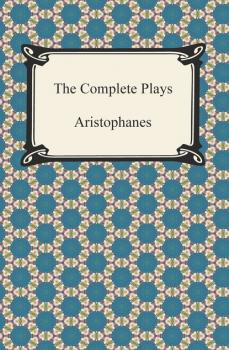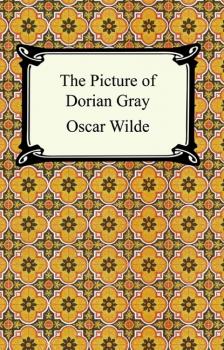MREADZ.COM - много разных книг на любой вкус
Скачивание или чтение онлайн электронных книг.Twenty Years at Hull House
"Twenty Years at Hull House" is the story of the Hull House settlement by its founder Jane Addams. The settlement movement, which gained popularity first in London at the end of the 19th century, soon spread to the United States and was principally involved in improving the lives of the urban poor by providing opportunities for higher education and essential social services. Hull House, one of the most famous of the «settlement houses», was located in the Near West Side community area of Chicago and was run by Jane Addams until her death in 1935. «Twenty Years at Hull House» is an important narrative of the settlement movement in the United States, which contributed significantly to the advancement of poor and working class peoples.
The Wind in the Willows
Originally written as a series of bedtime stories for the author's son, «The Wind in the Willows» is a classic of children's literature that can equally be enjoyed by adults. It tells the adventures of the Toad, the Mole, the Rat, and the Badger who all live along or by the riverbank. This collection of stories is a captivating timeless classic.
The Flowers of Evil / Les Fleurs du Mal (English and French Edition)
Upon its original publication in 1857 Charles Baudelaire's «Les Fleurs du Mal» or «The Flowers of Evil» was embroiled in controversy. Within a month of its publication the French authorities brought an action against the author and the book's publisher claiming that the work was an insult to public decency. Eventually the French courts would acknowledge the literary merit of Baudelaire's work but ordered that six poems in particular should be banned from subsequent publication. The notoriety caused by this scandal would ultimately work in the author's favor causing the initial publication to sell out, thus prompting the publication of another edition. The second edition was published in 1861, it included an additional thirty-five poems, with the exclusion of the six poems censored by the French government. Finally in 1868 a third edition was published posthumously. This collection added an additional fourteen poems selected by two of Baudelaire's friends yet again excluded the six censored poems. Literary scholars generally agree that, while well-meaning, the addition of these poems in the third edition disrupt the structure intended by Baudelaire and thus the 1861 edition should be considered as the definitive edition. In this volume we reproduce that 1861 edition along with the six censored poems in the original French and in an English translation by William Aggeler. Rich with symbolism, «The Flowers of Evil» is rightly considered a classic of the modernist literary movement. Its themes of decadence and eroticism seek to exhibit Baudelaire's criticism of the Parisian society of his time.
The Complete Plays
This comprehensive compilation of Aristophanes' texts, «The Complete Plays of Aristophanes» contains eleven unique stories all penned by the famously witty Greek playwright. His works are also important because they are some of the last remaining forms of Old Comedy in existence. The plays are filled with all kinds of satire, ranging from politics and sex to the humorous portrayals of popular Greek figures. «The Clouds» depicts the philosopher Socrates as a sneaky old man with a penchant for stirring up discontent and mischief. In «Lysistrata,» the women of Greece refuse to give their husbands sex unless they re-think their stance in the Peloponnesian War. «The Frogs» shows that the Greek god Dionysus bumbling around the Underworld because he misses the older and more tragic plays over the newer tongue-in-cheek ones. Aristophanes appreciated the more tragic plays, but he refused to let himself take them too seriously. He believed that the audiences needed something more in their lives than solemn tales about the Greek gods, so he made them laugh with his sarcastic and sardonic humor. He was also influential in that he revised the role of the classic Greek chorus; most choruses were only present in the tragedies; however, he doubled the number of chorus singers and made them the voice of humorous reason amidst the comical confusion. As such, Aristophanes is remembered and praised by critics and audiences alike.
Doctor Thorne
Despite a decreasing popularity throughout his career, Anthony Trollope (1815-1882) has become one of the most notable and respected English novelists of the Victorian Era. His penetrating novels on political, social and gender issues of his day have placed him among such nineteenth century literary icons as Jane Austen, Charles Dickens and George Eliot. Trollope penned 47 novels in his career, in addition to various short stories, travel books and biographies. «Doctor Thorne» (1858) is the third novel in Trollope's series known as the «Chronicles of Barsetshire,» and is argued to be Trollope's best work. It tells the story of Mary Thorne, the niece of Dr. Thomas Thorne, whose illegitimacy remains a secret for much of the novel as she is raised by her kind uncle and falls in love with the rich Frank Gresham. This melodramatic novel displays Trollope's brilliant management of plot and dialogue while exploring themes of illegitimacy, class division and the practice of marrying for money.
Candida
"Candida" is the story of its title character, a woman who is married to the Reverend Morell. Candida is a woman of many talents and her husband has his wife to thank for much of his success. When a young man by the name of Marchbanks professes his love for Candida, Morell must reexamine his relationship with his wife and ultimately discovers a side to her that he never knew existed. «Candida» is a play written during a time of great empowerment of women and Shaw brilliantly offers up Candida as an example of a strong and intelligent woman.
One of Ours
"One of Ours" is Willa Cather's Pulitzer prize winning story of Claude Wheeler, a Nebraska native at the turn of the 20th century. Claude is a young man who finds himself conflicted by the constraints of his overly pious mother and the demands that his father's successful farm places on his education and life. With the country on the brink of World War One, «One of Ours» is an important document of a changing American frontier and the plight of one young man to deal with it.
The Picture of Dorian Gray
"The Picture of Dorian Gray" is Oscar Wilde's classic tale of the moral decline of its title character, Dorian Gray. When Dorian has his portrait painted by Basil Hallward and wishes that he would stay young while his picture changes, his wish comes true. In exchange for this Dorian gives up his soul and as he ages the bad deeds that he commits are reflected in his painting and not him. «The Picture of Dorian Gray», arguably Wilde's most popular work, was considered quite scandalous when it was first published in the late 1800s in Victorian England.
Civil Disobedience and Other Essays (The Collected Essays of Henry David Thoreau)
Civil Disobedience and Other Essays is a collection of some of Henry David Thoreau's most important essays. Contained in this volume are the following essays: Civil Disobedience, Natural History of Massachusetts, A Walk to Wachusett, The Landlord, A Winter Walk, The Succession of Forest Trees, Walking, Autumnal Tints, Wild Apples, Night and Moonlight, Aulus Persius Flaccus, Herald of Freedom, Life Without Principle, Paradise (to be) Regained, A Plea for John Brown, The Last Days of John Brown, After the Death of John Brown, The Service, Slavery in Massachusetts, and Wendell Phillips Before Concord Lyceum.
The Pot of Broth
Born and educated in Dublin, Ireland, William Butler Yeats discovered early in his literary career a fascination with Irish folklore and the occult. Yeats felt an internal struggle with the contradictions he saw between his nature and life, and spent much of his life seeking out a philosophical system to resolve this conflict. He came to prominence during a tumultuous period in Irish history, and he struggled with the idea of an independent Irish identity. In 1899 Yeats helped found the Irish National Theatre Society, which later became the famous Abbey Theatre of Dublin. He and Lady Augusta Gregory, another of the theatre's founders, collaborated on a few short plays during those first experimental years at the theatre. One such play, «The Pot of Broth», is a «peasant» farce that tells the story of a gullible peasant woman, convinced by a tramp that dropping a magic stone into hot water will make a wonderful soup.









